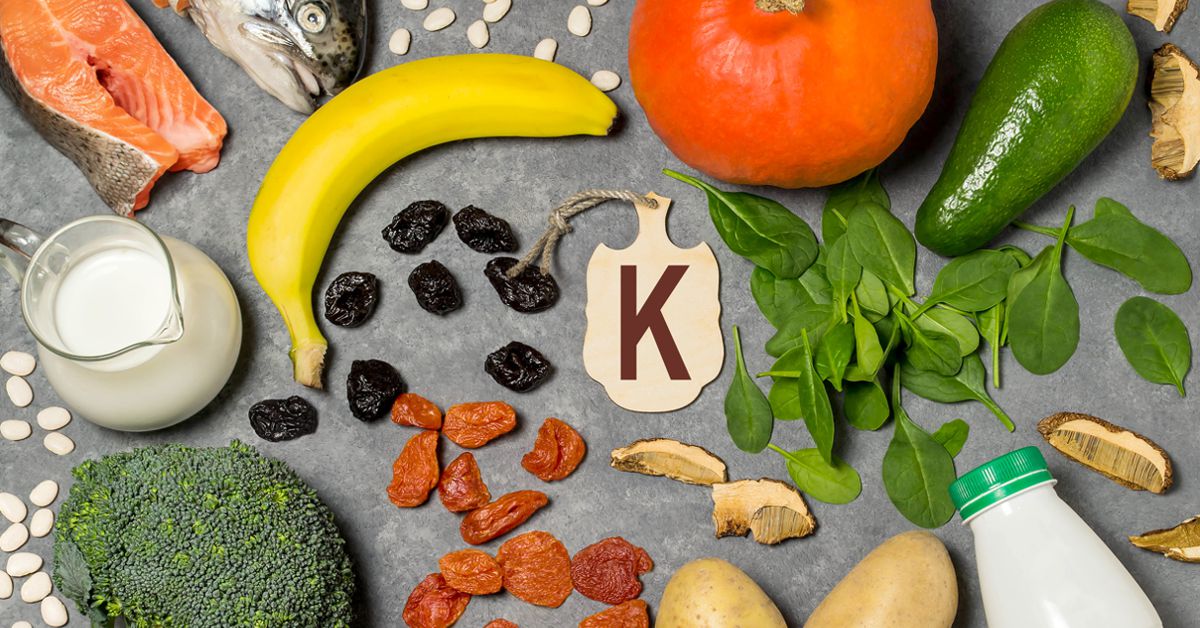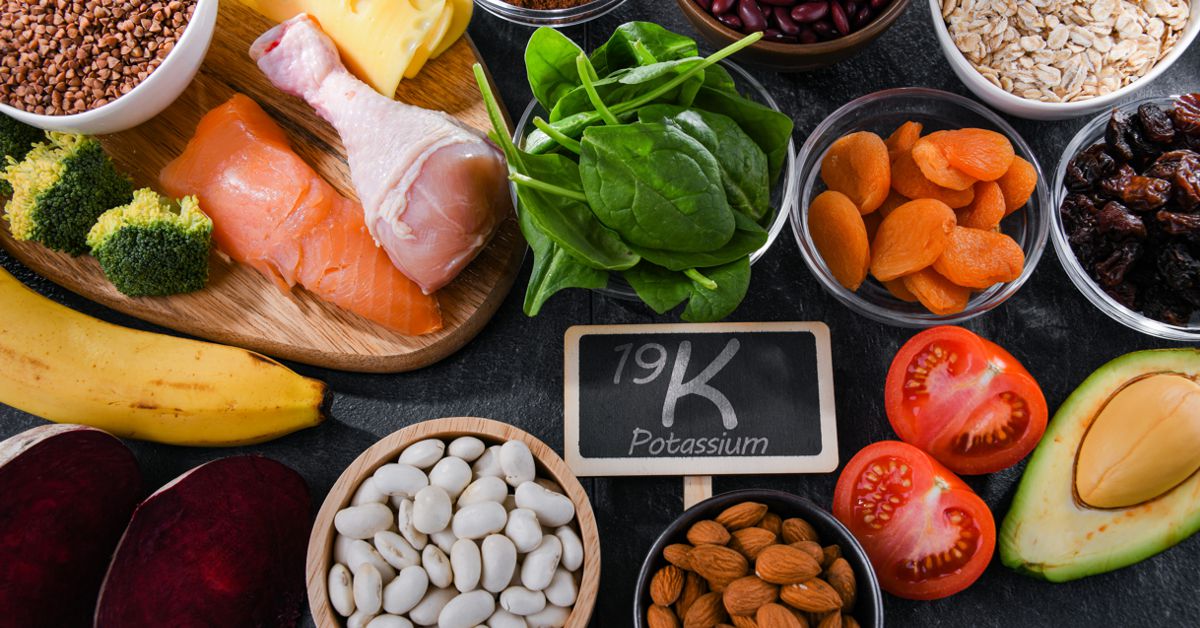Potassium is an essential mineral that plays a vital role in maintaining overall health and well-being.
It is a key component of many physiological processes, including regulating fluid balance, muscle function, and nerve transmission.
It is also crucial for maintaining healthy blood pressure levels and preventing osteoporosis.
Despite its importance, many individuals do not consume enough in their diet, putting them at risk for deficiency.
In this article, we will explore the importance of it in nutrition, and how to ensure adequate intake through diet and supplements.
Importance of potassium in the body
It is a key mineral that helps regulate fluid balance within the body. It does this by helping to maintain the balance of electrolytes, which are minerals that carry an electric charge.
When there is an imbalance of electrolytes, it can lead to a number of health issues, including muscle cramps, weakness, and fatigue.
It helps to counteract the effects of sodium, which can cause water retention and high blood pressure.
Adequate potassium intake can help to lower blood pressure and reduce the risk of hypertension and stroke.
It is also plays a critical role in muscle function. The mineral is necessary for muscle contractions, and a deficiency can lead to muscle weakness, cramps, and fatigue.
It is also important for nerve function, as it helps to transmit electrical impulses throughout the body.
Adequate potassium intake is necessary for normal nerve function and can prevent issues such as numbness, tingling, and muscle weakness.
Potassium deficiency, also called hypokalemia, can lead to a number of health problems.
Symptoms of it deficiency include muscle weakness and cramps, fatigue, and an irregular heartbeat.
In severe cases, deficiency can lead to life-threatening cardiac arrhythmias.
Potassium deficiency can also increase the risk of osteoporosis, as potassium is necessary for maintaining healthy bone density.
Benefits
In addition to the benefits already mentioned, it also has other important benefits for overall health.
Benefits on the hearth
Adequate potassium intake can help to reduce the risk of heart disease and stroke by regulating blood pressure and reducing the risk of hypertension.
It can also help to lower the risk of heart disease by preventing the formation of blood clots and improving the elasticity of blood vessels.
Benefits on the kidney
The mineral helps to regulate the balance of fluids and electrolytes in the body, which is essential for maintaining healthy kidney function.
Adequate potassium intake can also help to prevent the formation of kidney stones.
Benefits on the bones
As mentioned earlier, it is necessary for maintaining healthy bone density and preventing osteoporosis.
Adequate intake can help to increase bone mineral density, which can reduce the risk of fractures and other bone-related injuries.
Benefits on digestion
The mineral helps to regulate the balance of fluids in the body, which is essential for maintaining healthy digestion. Adequate intake can also help to prevent constipation and other digestive problems.
In addition to all the above benefits, it also has a role in glucose metabolism, Insulin sensitivity and thus it may be beneficial in managing diabetes.
Potassium in food
There are many foods that are rich in it, and each food contains a different amount of it. Some examples of potassium content in food include [3]:
- Avocados: A half avocado (68 grams) provides 345 mg of potassium, about 7% of the Daily Value (DV).
- Sweet Potatoes: One cup of mashed sweet potato (328 grams) offers 16% of the DV for potassium.
- Spinach: One cup of frozen spinach (190 grams) contains 12% of the DV for potassium.
- Watermelon: Two wedges (about 572 grams) provide nearly 14% of the DV for potassium.
- Coconut Water: One cup (240 mL) delivers 13% of the DV for potassium.
- Beans: One cup of white beans (179 grams) offers 21% of the DV for potassium.
- Legumes: Lentils (1 cup, 198 grams) provide 15% of the DV, while chickpeas, soybeans, and peanuts offer 10-23% of the DV per serving.
- Tomato Paste: Three tablespoons (50 grams) contain over 10% of the DV for potassium.
- Butternut Squash: One cup (205 grams) gives 12% of the DV for potassium.
- Potatoes: One medium boiled potato (167 grams) provides 12% of the DV for potassium.
It's important to note that the content in food can vary depending on factors such as growing conditions and preparation methods.
In addition to including potassium-rich foods in your diet, it's also important to track your intake and make sure you are meeting the recommended daily intake of 4,700 milligrams.
Incorporating potassium-rich foods into a healthy diet is easy and delicious.
One way to increase potassium intake is to include a banana or avocado in your breakfast smoothie.
Another option is to make a sweet potato or tomato-based soup for lunch. Leafy greens, such as spinach and kale, are also a great source ofit and can be added to a salad or sautéed as a side dish.
Eating fish, such as salmon or cod, at least twice a week, is also a great way to increase potassium intake.
Additionally, adding nuts and seeds such as almonds, pumpkin seeds to your diet can also be an easy way to increase potassium intake.

Potassium supplements
While it is best to get your nutrients from food, in some cases, a supplement may be necessary.
Supplements are typically used to treat deficiency, but they can also be used to prevent deficiency in people who are at risk, such as those with chronic kidney disease, those who have had bariatric surgery, or those who are taking certain medications that can cause potassium loss.
Supplements come in various forms, including tablets, capsules, and liquids.
Tablets and capsules are the most common form of supplement, and they are available in various strengths.
Liquid supplements are also available and are often used for people who have difficulty swallowing pills.
Supplements can interact with certain medications, including diuretics, laxatives, and steroids.
Diuretics, also called water pills, can cause potassium loss and may increase the need for supplements.
Laxatives can also cause potassium loss and may increase the need for potassium supplements.
Steroids, such as prednisone, can cause potassium loss, and may increase the need for supplements.
It is also important to note that high doses of it can cause side effects, such as stomach cramps, nausea, and diarrhea.
It's important to monitor for these side effects and to speak to a doctor if they occur.
In rare cases, high doses of it can also cause more serious side effects such as muscle weakness, heart palpitations, and even heart attack.
High potassium levels can also cause kidney damage, especially in people with kidney disease.
Our top Choices
If you're considering taking a supplement, it's important to do your research and choose a high-quality product.
Our team at Woman Vitality has put together a list of the best potassium supplements on the market to help you make an informed decision.
Our list includes products that are high-quality, lab-tested, and have been recommended by healthcare professionals.
Recommended Daily Intake of Potassium [4]
- Birth to 6 months: 400 mg
- Infants 7–12 months: 860 mg
- Children 1–3 years: 2,000 mg
- Children 4–8 years: 2,300 mg
- Children 9–13 years (boys): 2,500 mg
- Children 9–13 years (girls): 2,300 mg
- Teens 14–18 years (boys): 3,000 mg
- Teens 14–18 years (girls): 2,300 mg
- Adults 19+ years (men): 3,400 mg
- Adults 19+ years (women): 2,600 mg
- Pregnant teens: 2,600 mg
- Pregnant women: 2,900 mg
- Breastfeeding teens: 2,500 mg
- Breastfeeding women: 2,800 mg
These amounts represent average daily recommendations and may vary based on individual health needs. Ensuring adequate potassium intake through a balanced diet is crucial for overall health and well-being.
Conclusion
In conclusion, potassium is an essential mineral that plays a vital role in maintaining overall health and well-being.
It helps regulate fluid balance, muscle function, and nerve transmission, and is necessary for maintaining healthy blood pressure levels and preventing osteoporosis.
Unfortunately, many individuals do not consume enough of it in their diet, putting them at risk for deficiency.
To ensure adequate intake, it is important to include potassium-rich foods in your diet, such as bananas, avocados, sweet potatoes, leafy greens, and tomatoes.
In some cases, a supplement may be necessary, but it is important to speak to a doctor or health professional before taking any supplement and to be aware of potential side effects and interactions with other medications.
Overall, it is an important nutrient that should not be overlooked and should be included as part of a balanced and healthy diet.
One Last Thing...
Thank you for reading! Don't forget to save our site in your bookmarks and share it if you found this article helpful.
Explore more articles like this one in our Nutrition section here on Woman Vitality
References
Healthdirect Australia. (2023, September 15). Potassium and your health. Health Benefits and How Much You Need | Healthdirect. https://www.healthdirect.gov.au/potassium#:~:text=Potassium%20is%20a%20mineral%20that,waste%20around%20your%20body%27s%20cells.
Rd, R. R. M. (2023, March 28). What does potassium do for your body? A detailed review. Healthline. https://www.healthline.com/nutrition/what-does-potassium-do
Mba, A. L. B. (2023, June 28). 18 foods that pack more potassium than a banana. Healthline. [3] https://www.healthline.com/nutrition/foods-loaded-with-potassium#high-potassium-foods
Office of Dietary Supplements - Potassium. (n.d.). [4] https://ods.od.nih.gov/factsheets/Potassium-Consumer/

Leave A Comment